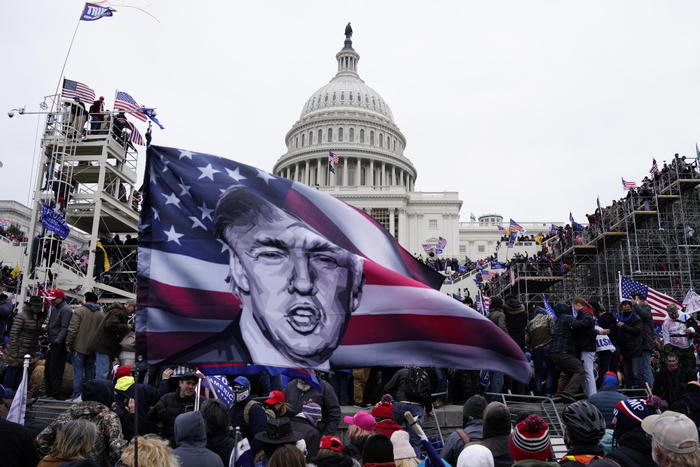With his back-to-back wins in the Iowa and New Hampshire primaries, the possibility that Donald Trump might be back in the White House in 2025 is becoming real, and legislators and government agencies are preparing to forestall a repeat of the chaos that America witnessed on January 6, 2021.
As Trump hints broadly that if given a second mandate he would be a “dictator” at least for a limited time, the threats to democracy are out in the open.
Multiple government agencies are crafting legislation designed to rein him in should that eventuality become reality. As part of the fiscal 2024 Pentagon policy bill, for example, Congress approved bipartisan legislation that would prevent any president from withdrawing the United States from NATO without approval from the Senate or an act of Congress—something that Donald Trump threatened to do while president and that he has reportedly already discussed doing should he be elected.
Senator Richard Blumenthal a senior member of the Homeland, Armed Services and Judiciary committees, mindful of the Jan. 6 insurrection, told POLITICO that he is seeking both Republicans and Democrats to join him in overhauling the law involving deployments inside the U.S., known as the Insurrection Act.
“I think part of the evidence for enacting reform is in fact Donald Trump’s statements about how he would abuse the insurrection powers,” Blumenthal stated.
Amid the 2020-2021 protests, as he and his supporters claimed that the election had been “stolen” from him, Trump threatened to use the military to stamp out the unrest across the country. Soon after, Defense Secretary Mark Esper publicly broke with Trump and said he did not support invoking the Insurrection Act — and issued an internal memo urging the department’s workers to “stay apolitical in these turbulent days.”
Nor would Trump hesitate to turn the military on ordinary citizens. Calling New York City and Chicago “crime dens,” the GOP front-runner told his audience that he would not hesitate to send in the military to stymie crime. It is worth noting that he names Democratic strongholds like New York city, Los Angeles and Chicago as the places most in need of such intervention—principally the “sanctuary cities” that he deems to be the hotbeds of protests and crime.
Referring to his previous term as president and his reluctance to send in the military, he stated, “The next time, I’m not waiting.” Indeed, while the President can only do so after he has been invited in by the governor or the mayor, Trump vows that he won’t even wait for that. “One of the things I did was let them run it and we’re going to show how bad a job they do…Well, we did that. We don’t have to wait any longer.”
The Insurrection Act, enacted in 1792, grants the president the authority to deploy the military domestically and use it against Americans to suppress rebellion or violence. But Blumenthal and other critics argue that it is overly broad and ripe for abuse.
“Ideally, there would be interest on the Republican side because the potential for abuse really ought to concern all of us, regardless of who was president,” Blumenthal said.
This is not the first time that Blumenthal has tried to sharpen the law. In 2020, following Trump’s threats to use troops amid civil rights protests across the U.S. after the police killing of George Floyd, he introduced a bill that attracted 25 co-sponsors but eventually went nowhere.
Blumenthal’s goal is to amend the law to more clearly define an insurrection and the circumstances under which the president can use force. These two crucial points are currently unclear and therefore invite abuse by an unscrupulous president, be they Democrat or Republican, according to Blumenthal.
Under the law now, a president may deploy troops to “suppress rebellion” whenever “unlawful obstructions, combinations, or assemblages, or rebellion” make it “impracticable” to enforce federal law in that state by the “ordinary course of judicial proceedings.”
“President Trump has in fact talked about sending troops into cities where he regards the police as being inadequate — in effect, potentially declaring martial law,” Blumenthal said, “so I think there needs to be stronger oversight.”
Blumenthal said he is working on the legislation with legal scholars at the nonpartisan Brennan Center for Justice in New York.












